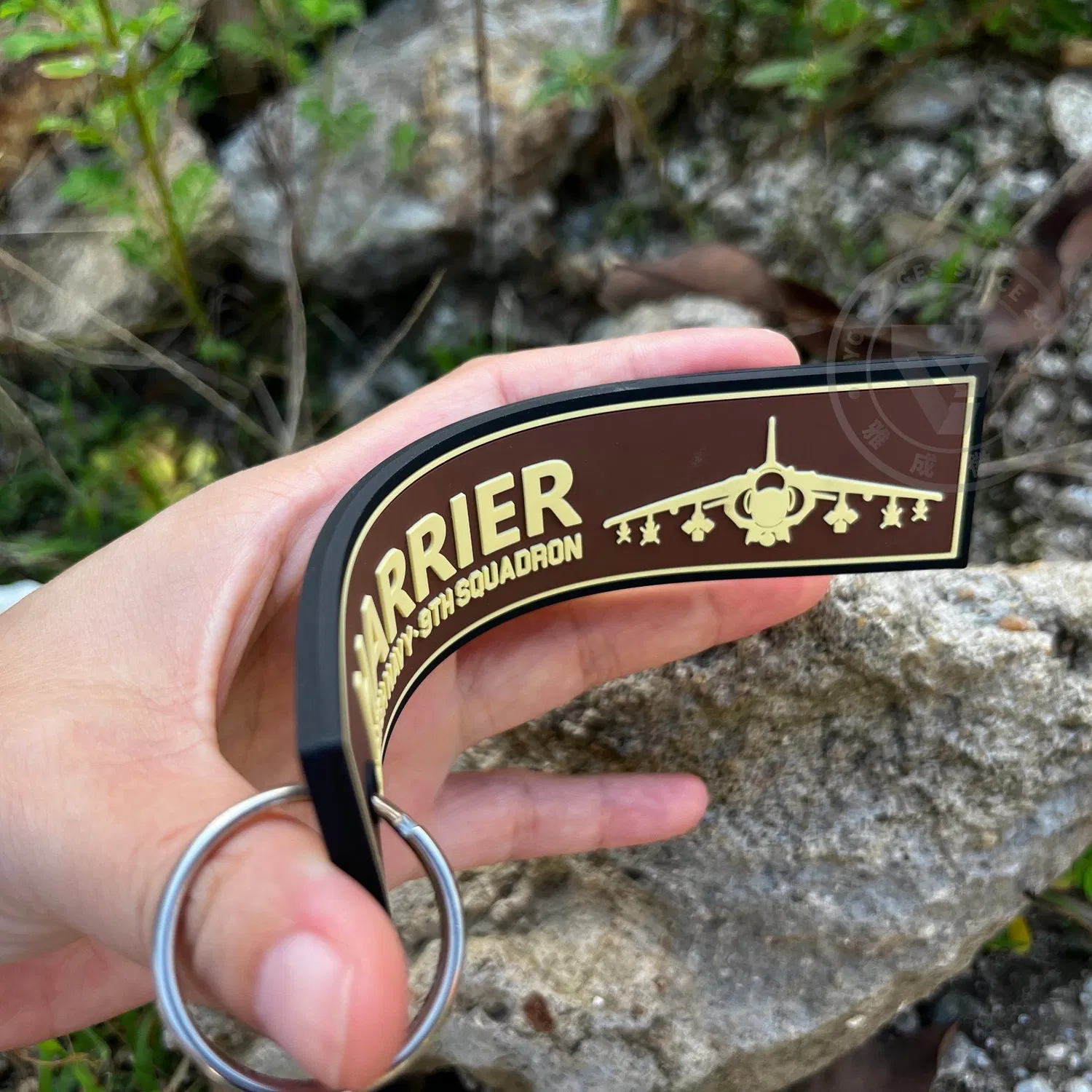For questions or to order by phone, call +86 186 8856 0026 or email us today joneyfang@yc-badges.com
What are the advantages of using PVC labels compared to other materials?
In the realm of product labeling, the choice of material can significantly impact a brand’s message, product protection, and overall appeal. PVC labels have emerged as a popular option, offering several distinct advantages over other materials. Let’s explore these benefits in detail.
1. Durability
One of the most notable advantages of PVC labels is their exceptional durability. PVC, or polyvinyl chloride, is a robust synthetic material. It can withstand harsh environmental conditions, including moisture, humidity, and temperature fluctuations. For products that are stored outdoors, like gardening tools or outdoor furniture, PVC labels won’t fade, crack, or peel easily. This makes them far more resilient compared to paper labels, which can quickly deteriorate when exposed to moisture.
Moreover, PVC labels are highly resistant to abrasion. Whether a product is being handled frequently, like a mobile phone case, or is subject to rubbing against other surfaces during transportation, the PVC label will maintain its integrity. In contrast, fabric or paper – based labels may get scratched or damaged under such circumstances.
2. Versatility in Design
PVC labels offer unparalleled flexibility in design. They can be customized in various shapes, sizes, and colors to suit any brand’s needs. High – quality printing techniques can reproduce vivid, detailed graphics, intricate patterns, and sharp text on PVC surfaces. This allows brands to create eye – catching labels that stand out on the shelves.
For instance, a cosmetics brand might use a PVC label with a holographic finish to add a touch of luxury and uniqueness to its packaging. The label can be cut into an irregular shape to match the contour of the product, enhancing its overall aesthetic appeal. In comparison, some other label materials may have limitations in terms of the complexity of design they can accommodate.
3. Cost – effectiveness
When considering long – term costs, PVC labels can be a cost – effective option. Although the initial investment in PVC labels might seem slightly higher than some basic paper labels, their durability means they don’t need to be replaced frequently. This reduces the overall cost of relabeling, especially for products with a long lifespan or those that are exposed to demanding conditions.
In addition, PVC labels can be produced in large quantities at a relatively low cost per unit. This makes them an attractive choice for mass – produced consumer goods. The economies of scale associated with PVC label production contribute to their cost – effectiveness for businesses.
4. Chemical Resistance
PVC has excellent chemical resistance. This is particularly beneficial for products that come into contact with chemicals, such as cleaning supplies, automotive fluids, or industrial products. The label will not react with the chemicals, ensuring that the product information remains intact and legible.
For example, a label on a bottle of industrial solvent needs to withstand the chemical’s corrosive properties. PVC labels can do this effectively, while labels made of other materials like paper or certain plastics may dissolve or become unreadable when exposed to such chemicals.
5. Waterproof and Moisture – resistant
The waterproof nature of PVC labels is a significant advantage, especially for products that are used in wet environments or may be exposed to moisture. A PVC label on a bathroom product, like a shampoo bottle, will not get soggy or lose its adhesive properties due to steam or water splashes.
This feature also makes PVC labels suitable for products that are stored in humid conditions, such as basements or warehouses. Unlike paper labels that can become moldy or discolored in high – humidity environments, PVC labels remain in good condition, preserving the product’s branding and information.
6. Ease of Application
PVC labels are relatively easy to apply. They can be attached to a variety of surfaces, including plastic, glass, metal, and cardboard, using different methods such as adhesive backing, heat – sealing, or stitching (in some cases). The adhesive – backed PVC labels are particularly convenient, allowing for quick and straightforward application during the production process.
Furthermore, the smooth surface of PVC labels ensures that they adhere well, providing a seamless and professional look. This ease of application, combined with their durability, makes PVC labels a practical choice for manufacturers.
In conclusion, PVC labels offer a range of advantages over other label materials. Their durability, versatility in design, cost – effectiveness, chemical resistance, waterproof properties, and ease of application make them a top choice for many industries. Whether it’s for consumer products, industrial goods, or outdoor items, PVC labels can effectively communicate a brand’s message while withstanding the rigors of various environments.
